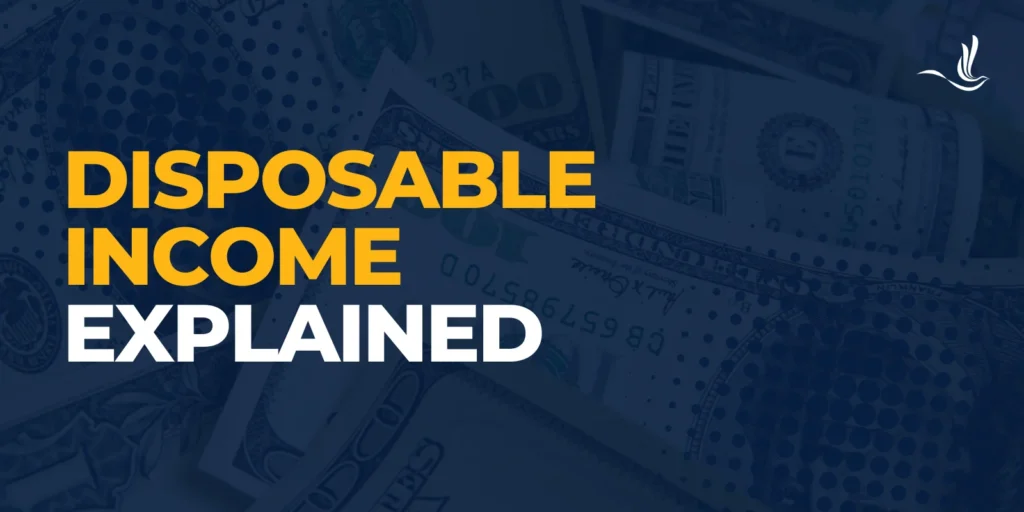
Disposable income serves as a key economic indicator. It reflects the financial health and spending power of individuals and households. It represents the money available after taxes, providing a glimpse into how much individuals can spend, save, or invest. However, taxes play a significant role in shaping disposable income, influencing spending patterns and economic behaviors. In this article, we break down the concept of disposable income, explore its significance, and examine how taxes impact its utilization.
What is Disposable Income?
Disposable income (DI) refers to the amount of money individuals or households have available for spending and saving after paying taxes to the government. It is the income remaining once taxes, including income tax, payroll tax, and any other deductions, have been subtracted from gross income. Essentially, it is the money that individuals can freely allocate to consumption, savings, investments, or debt repayment.
Significance
Understanding disposable income is crucial for assessing an individual’s or household’s financial well-being. It serves as a barometer for consumer spending, which is a significant driver of economic growth. Higher DI generally correlates with increased consumer spending. This in turn stimulates demand for goods and services, leading to economic expansion.
Moreover, it influences saving and investment behaviors. Individuals with higher disposable income can save more for emergencies, retirement, or large purchases. Additionally, it enables individuals to invest in assets such as stocks, bonds, real estate, or retirement accounts, fostering wealth accumulation and financial security over the long term.
Impact of Taxes on Disposable Income
Taxes have a direct impact on disposable income, as they reduce the amount of money available for consumption and saving. In addition to federal income taxes, there is also state income tax, which varies across the country with different rates, deductions, and exemptions affecting DI differently.
Income Tax
Income tax is a significant contributor to reducing DI. It is imposed on earned income, including wages, salaries, bonuses, and investment income such as interest and dividends. Progressive income tax systems levy higher tax rates on higher income levels, leading to a greater reduction in disposable income for high earners.
Payroll Taxes
Payroll taxes, which fund social insurance programs such as Social Security and Medicare, also diminish disposable income. These taxes are typically withheld from employees’ paychecks by employers. Payroll taxes are comprised of a fixed percentage of wages up to a certain limit. While payroll taxes are regressive, meaning they impose a higher burden on low-income earners, they still impact DI for all workers.
Consumption Taxes
Consumption taxes, such as sales tax or value-added tax (VAT), are levied on goods and services at the point of purchase. Unlike income taxes, which are based on earnings, consumption taxes affect spending directly, reducing disposable income with each transaction. The regressive nature of consumption taxes means that they can disproportionately impact low-income individuals, who may spend a higher proportion of their income on taxable goods and services.
Use in Taxes in Disposable Income
While taxes reduce DI, how individuals allocate their remaining funds can have tax implications as well. Several strategies can help minimize tax liabilities.
Retirement Contributions
Contributing to retirement accounts such as 401(k) plans or individual retirement accounts (IRAs) can reduce taxable income while simultaneously saving for the future. Contributions to these accounts are often tax-deductible, lowering current tax obligations and potentially increasing disposable income.
Tax-Advantaged Investments
Investing in assets with favorable tax treatment, such as municipal bonds or certain retirement accounts, can shield investment income from taxes or defer tax liabilities. This helps preserve more DI for the present.
Tax Credits and Deductions
Taking advantage of available tax credits and deductions can reduce overall tax liabilities, effectively increasing disposable income. Common tax credits include the Earned Income Tax Credit (EITC) and the Child Tax Credit, while deductions such as mortgage interest or charitable contributions can lower taxable income.
Tax Help in 2024
DI serves as a vital metric for assessing financial well-being and economic vitality. Taxes play a crucial role in shaping DI, influencing spending, saving, and investment decisions. Understanding the impact of taxes can empower individuals to make informed financial choices, optimizing their resources and maximizing their financial freedom. By employing tax-efficient strategies and leveraging available resources, individuals can effectively manage their disposable income, enhancing their economic security and prosperity. Optima Tax Relief is the nation’s leading tax resolution firm with over a decade of experience helping taxpayers with tough tax situations.
Contact Us Today for a No-Obligation Free Consultation